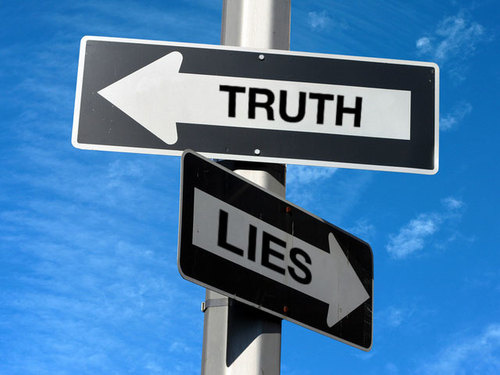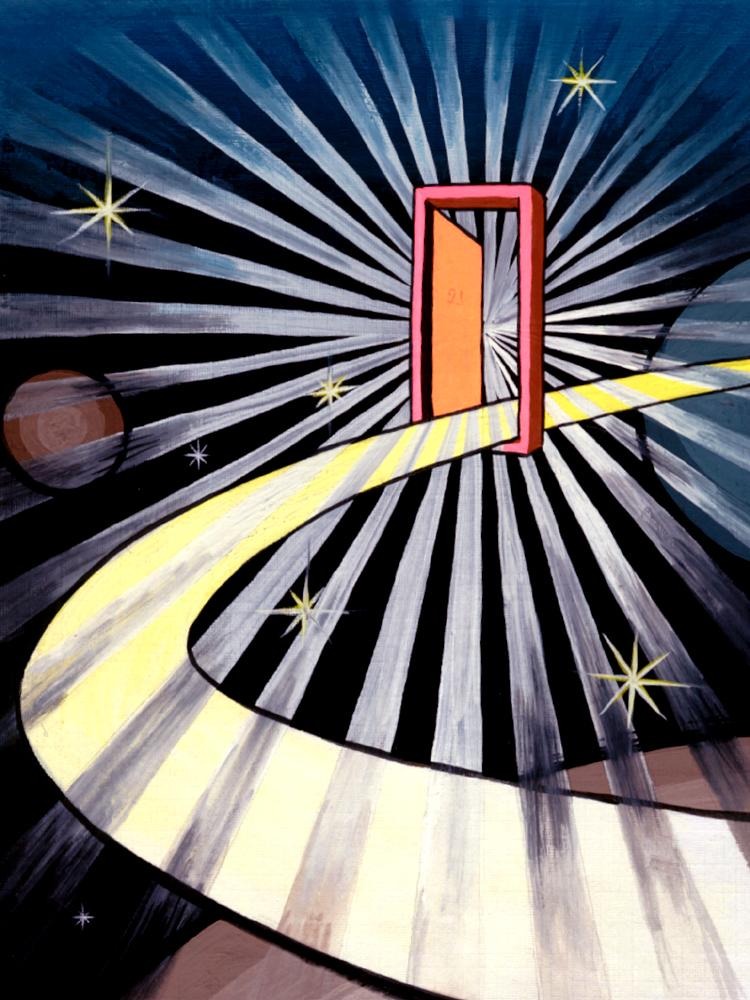What is truth? Is it relative (i.e. each person determines their own truth, which may be different from that of the next person and it changes over time), or is it absolute (i.e. it is unchangeable and there is one truth out there for all time that is the same for everyone)? Who or what determines what truth is?
Some truths or laws can be determined through observation of empirical evidence. This is the basis of true science. But what about moral and spiritual truths not cannot be scientifically proven or tested? Who or who determines these? What if different people have different ideas of what moral truth is? For example, if a person has decided that murder, adultery, lying or stealing are morally acceptable to them, then how will this effect those around them and society as a whole?
These are important questions to ask. If one doesn’t know the answer, then how does a person live their life and determine what is right and wrong?
Also, in our modern society, all too often the definition of truth is changing such that what was truth at one time (e.g. male and female, marriage, family, the sanctity of life and what was considered life, standards governing human sexuality) is no longer truth. In fact, in many cases, the standards that society has traditionally considered to be right and wrong have been turned upside down: wrong or sin is now lauded as virtuous and commendable, and that which was morally right is now considered passé and even repugnant! How confusing is this?
What are the effects morally on a society that at one time deemed such things as adultery, fornication, homosexuality, abortion, the illegality of certain mind-altering drugs, pornography and, in some cases, even divorce to be morally wrong, but over time societal standards have changed, and so have the laws such that these things are no longer considered immoral or illegal? How does this effect the moral foundations of a society, an individual, the family unit, children, and how people in a society interact with each other?
If society, the family or an individual is like a building, then what is the moral foundation that they are built on? Is it sand or rock? How one defines truth and whether is it is relative (changing) or immutable (unchanging) will determine the solidity of that foundation. This not only affects us, but also those around us including the succeeding generations that we influence. It’s like the rings that spread out when a pebble is dropped into a pool of water.
The Bible addresses these issues.
If the foundations are destroyed, What can the righteous do? (Ps 11:3)
“Therefore whoever hears these sayings of Mine, and does them, I will liken him to a wise man who built his house on the rock: and the rain descended, the floods came, and the winds blew and beat on that house; and it did not fall, for it was founded on the rock. But everyone who hears these sayings of Mine, and does not do them, will be like a foolish man who built his house on the sand: and the rain descended, the floods came, and the winds blew and beat on that house; and it fell. And great was its fall.” (Matt 24:24–27)
Can humans really determine what moral truth is? Or do we need someone outside of our existence and who is greater and more knowledgeable than us to tell us what right and wrong is? Someone who has the oversight, wisdom and knowledge to understand what the short and long-range consequences of our actions will be upon us and society if we act one way or another?
With the idea that man needs a little (or maybe a lot!) of help from his Creator to determine moral truth, so that he doesn’t find himself in a societal mess of conflicting values resulting in confusion and chaos, and eventually destruction and death, let’s now examine the concept of truth from a biblical perspective.
John 17:17, Truth. Yeshua, the One sent to this earth from Elohim in heaven, says here, “Thy [Elohim’s] Word is truth.” In Matthew 4:4, Yeshua said, “Man shall not live by bread alone, but by every word that proceeds out of the mouth of Elohim.”
So what is truth? The word in Hebrew for truth is emet (spelled aleph, mem, tav), which is Continue reading






